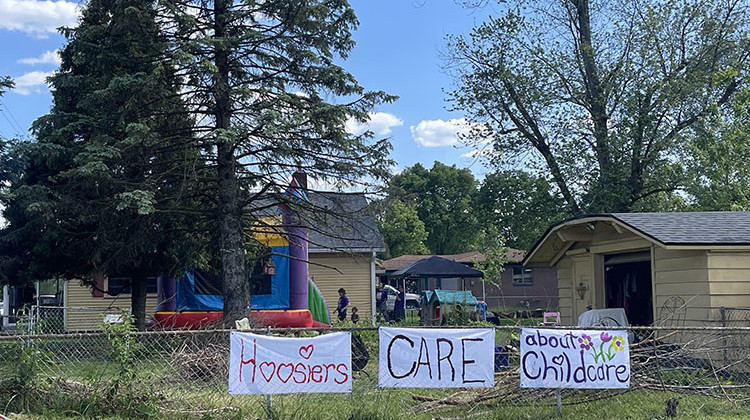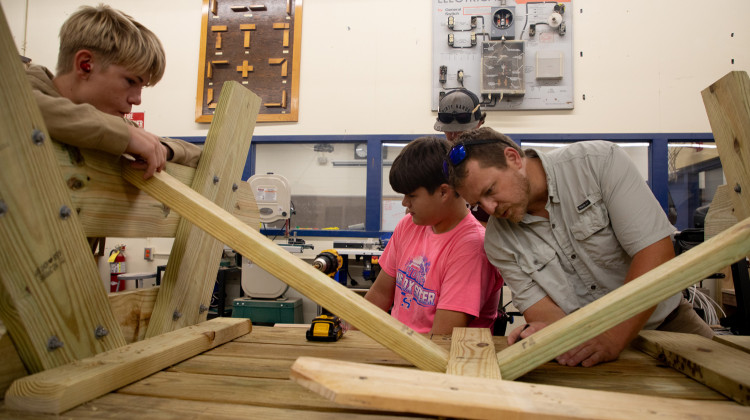In a backyard on Indianapolis’ southeast side, child care providers and supporters met on Monday afternoon to advocate for higher wages and state support for early childhood education.
The protest, A Day Without Child Care, was one local chapter of a national movement. Child care providers across the country agreed to close the doors of their business for the day in an effort to demand higher wages and better working conditions.
At L.O.V.E. your Childcare, an in-home childcare business, parents and care providers demanded better regulations.
Doris Jones works part time as a care provider and part time as a custodian. As a child care provider, she is only able to afford care for one of her two children.
“So if the statehouse doesn't wake up seriously and raise the wages, we're gonna continue on fighting and keep on standing behind the childcare workers,” Jones said. “Period, hands down.”
Only 61 percent of the children likely needing care can be served through existing capacity, according to the latest state data from Early Learning Indiana. And some options continue to shrink. Many providers have left the field because of low wages and working conditions.
“The only reason why I'm taking a little pay and stuff is for the kids that I help,” Jones said. “That's the only reason why, and I know most of us childcare workers are sticking around only for the kids.”
The average wage for early childhood care providers is just over $14 an hour.
For the last several years, Indiana lawmakers have passed legislation to help increase the availability and affordability of child care. That includes lowering the age limit for care providers working with infants, as well as increasing the capacity of students allowed at unlicensed care provider businesses.
Adam Stant showed up to the Day Without Childcare in Indianapolis as a supporter. He thinks relaxing certification standards for workers is not only disrespectful, but dangerous.
“There are bad things that can happen to children if there isn't someone watching all the folks who are doing this,” Stant said. “This is a profession, treat them like professionals.”
 DONATE
DONATE







 Support WFYI. We can't do it without you.
Support WFYI. We can't do it without you.